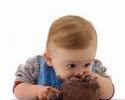Symptoms of autism include repetitive actions, decreased social interactions, and impaired communication. As most parents know, children also routinely suffer from gastrointestinal issues like abdominal cramps and constipation. Using the co-occurrence of brain and gut problems, researchers are investigating a potentially transformative new therapy for autism.
Gut bacteria may contribute to symptoms
“Traditional research has studied autism as a genetic disorder and a disorder of the brain, but our work shows that gut bacteria may contribute to ASD-like symptoms in ways that were previously unappreciated,” explained Professor of Biology Sarkis K. Mazmanian. “Gut physiology appears to have effects on what are currently presumed to be brain functions.” The gut microbiota, or community of bacteria in the gastrointestinal tract, has been shown to influence social and emotional behavior. This study from Caltech research is the first to demonstrate that changes in these gut bacteria can influence autism-like behaviors.
Mice with co-occurring symptoms
Researchers used a mouse model of autism. Researchers found that these mice, created by giving their pregnant mothers a viral infection, also had GI abnormalities. The mice intestines allowed food material to pass through the intestinal wall and into the bloodstream, much like people with ASD. Researchers treated the mice with a bacterium that has been used as an experimental probiotic therapy in animals.
Leaky guts healed and behavior improved
“The B.fragilis treatment alleviates GI problems in the mouse model and also improves some of the main behavioral symptoms,” stated Elaine Hsiao, a senior fellow at Caltech. The probiotic treatment has exciting potential.
Powerful possibilities
“This probiotic treatment is postnatal, which means that the mother has already experienced the immune challenge, and, as a result, the growing fetuses have already started down a different developmental path,” Paul Patterson, Professor of Biological services explained. “In this study, we can provide a treatment after the offspring have been born that can help improve certain behaviors. I think that’s a powerful part of the story.”
“Autism is such a heterogeneous disorder that the ratio between genetic and environmental contributions could be different in each individual,” Maxmanian stated. Even if B. fragilis ameliorates some of the symptoms associated with autism, I would be surprised if it’s a universal therapy – it probably won’t work for every single case.”
Source: MedicalNewsToday, Cell







